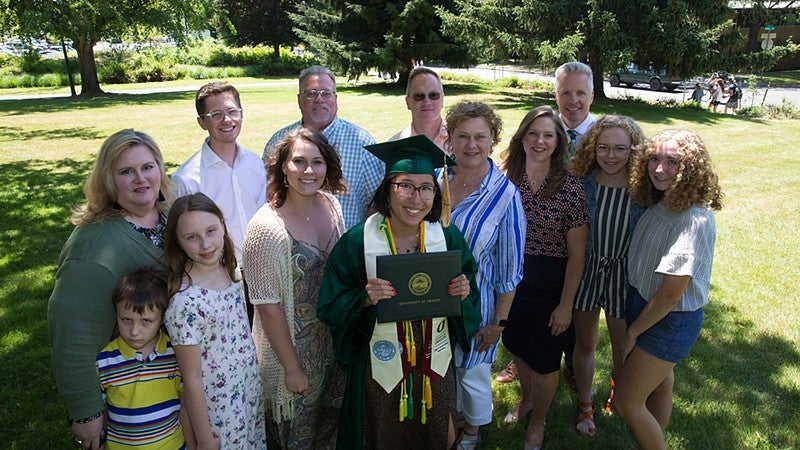
Ethnic Studies: A Chinese Adoptee Examines “Otherness”
A Chinese adoptee explores otherness within a family that is loving but different
By Zoë Haakenstaad • Photo courtesy Zoë Haakenstaad • October 2, 2019
5 min read
I was two-and-a-half when I realized I wasn’t like my adoptive family. My mother and I were in a Hallmark store when I noticed a young Asian girl. “She looks like me!” I exclaimed. This moment defined the fact that I would never feel the sense of pride of saying those words to my own family since they are white and I am not.
I was eight months old when, in 1998, I was adopted from Nanjing, China, and brought to the suburbs of Boise, Idaho. I had a good upbringing: a wonderful sister with whom I became close friends, a supportive family who honored my decisions, and a friendly neighborhood. But issues of belonging still sat inside me, like an itch. They weren’t always noticeable, but they were there.
There seemed to be no one with whom I could talk about this feeling because I was in an extremely white community, with a lack of Asian people in general and adopted Asians in particular. Moreover, I had a good life with a good family. I didn’t think there was anything to complain about, so I stifled that feeling.
I enrolled in the University of Oregon in 2016 and by the time I was a senior, I was a straight-A student preparing to graduate a year early. But most important to me was the community I had forged with other nonwhite groups, specifically those in the ethnic studies department. For my senior thesis in this major, and with the help of Professor Laura Pulido and Associate Professor Brian Klopotek, I launched a research project that changed the way I thought about my adopted identity in a white world. I asked: How does the experience of being raised in a primarily white environment affect an Asian American adoptee’s understanding of their Asian identity?
I studied the history of international adoption from Asia and the deep imperialist roots inextricably tied to the practice. I examined research that laid the groundwork for issues of belonging within adopted communities. However, the most important part of my research became my interviews. I released a survey for Asian adoptees in several Facebook groups and received more than 80 responses. I chose 15 subjects, ranging broadly in age, gender identity, and other demographics. For a month I conducted interviews over Skype, asking what it was like to be raised in a white family and how racial-ethnic identity was discussed within the household.
I found that feeling different within one’s family was not unique to me alone. Almost every adoptee had experienced some sense of not belonging, even within healthy families. These adoptees felt isolation from the Asian community and the sense of being “whitewashed”—that is, being assimilated into white society and lacking connection to one’s ethnic identity—and an inability to explore all this within the white family. These adoptees confirmed my research on issues of Asian identity, particularly scholar Mia Tuan’s notions of being “forever foreign.”
Most of all, I discovered that I had every right to have feelings of not belonging. As one interviewee said, “No matter how good your life is, you know that it started out with somebody not choosing you.” This was a piece of my origin story that was inseparable from my feelings of not belonging, and it was something that, through this research, I became comfortable sharing with my family. I was able to reframe the conversation from issues of blame to the unintended consequences of raising a child of color in a white family. I had the ability to say, “You’ve done nothing to hurt me, but sometimes I still feel hurt.”
Zoë Haakenstaad graduated in June with degrees in ethnic studies and journalism (advertising).

